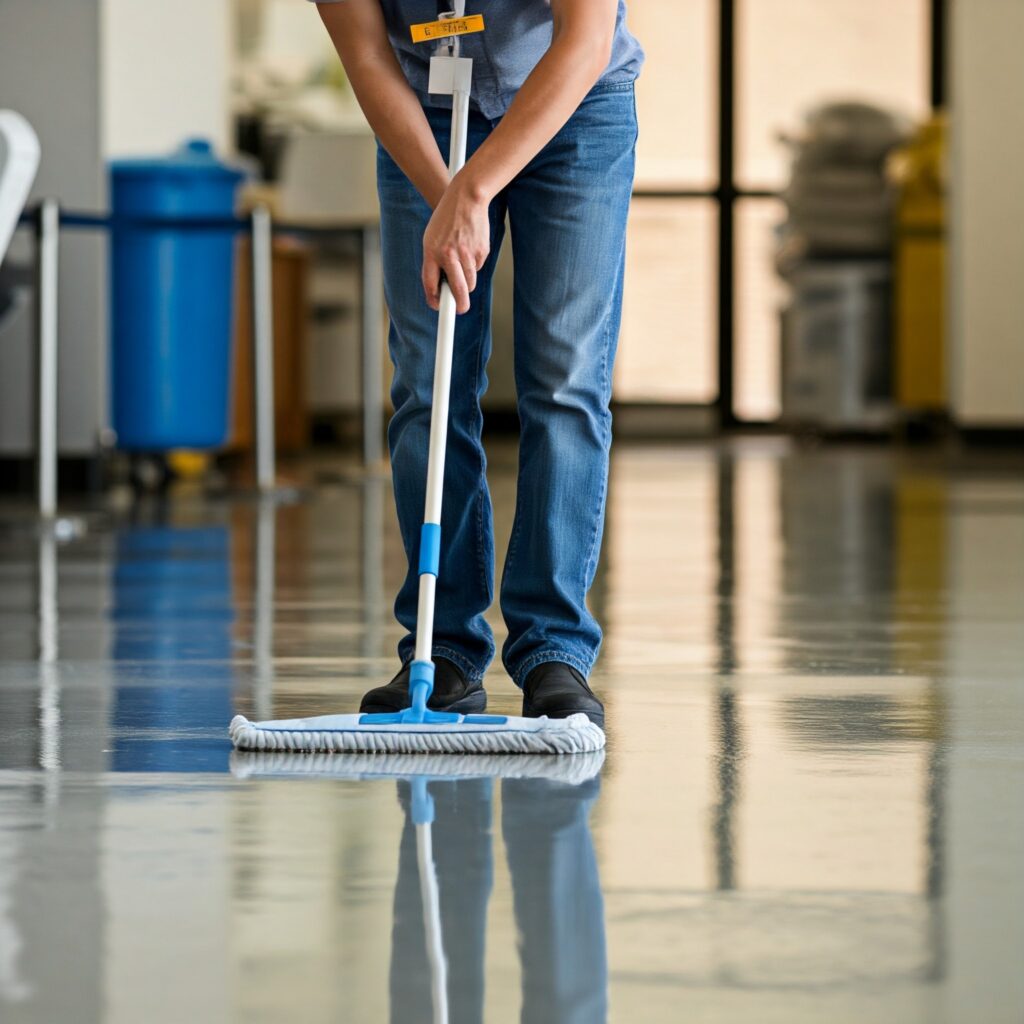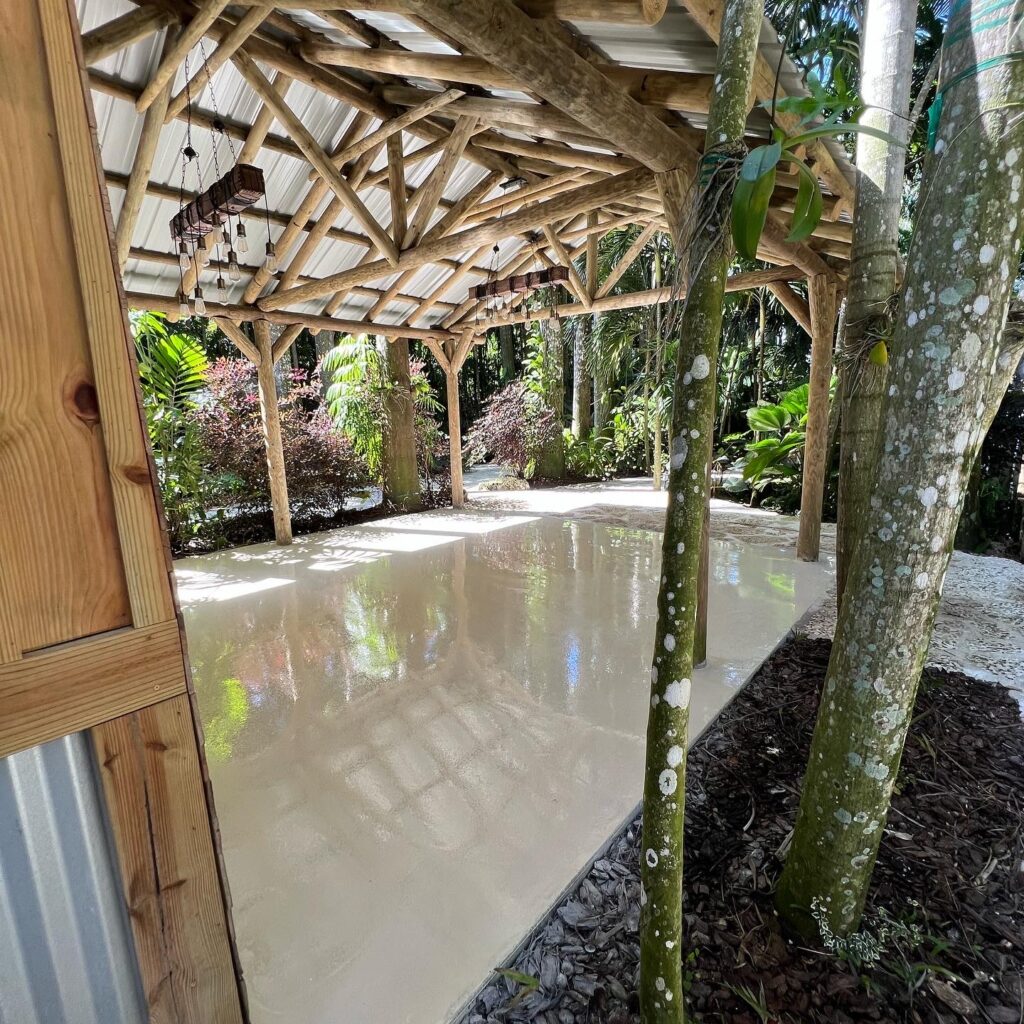The Importance of Proper Epoxy Floor Maintenance
Epoxy flooring is known for its durability, stunning aesthetics, and low-maintenance nature, making it a popular choice for both residential and commercial spaces. However, like any investment, epoxy floors require proper care to maintain their pristine appearance and long-lasting performance.
While epoxy is more resilient than traditional flooring options, neglecting its maintenance can lead to dullness, stains, or minor damage over time. Whether you have an epoxy floor in your garage, kitchen, or industrial facility, a consistent cleaning and care routine is essential to keep it looking and functioning at its best.
Daily Cleaning Tips
Regular cleaning is the foundation of maintaining your epoxy floor. A simple daily routine can prevent dirt buildup, protect the surface, and keep the floor looking polished.
Sweeping and Mopping Techniques
Sweeping: Dust and debris can accumulate quickly on epoxy floors, especially in high-traffic areas. Use a soft-bristle broom or a microfiber dust mop to sweep the floor daily. These tools are gentle enough to avoid scratching the surface while effectively capturing dirt and debris. Avoid using stiff-bristle brooms, as they may cause micro-scratches over time.
Mopping: For light cleaning, a damp mop is sufficient to remove smudges and minor stains. Use a non-abrasive mop and a mixture of warm water with a few drops of mild dish soap or a pH-neutral floor cleaner. Avoid soaking the floor, as excessive water can lead to streaks or dull the shine.
For best results, mop in straight lines and follow the natural grain of the floor to achieve a streak-free finish. After mopping, dry the surface with a clean towel or microfiber cloth to prevent water spots.
Deep Cleaning and Stain Removal
While daily cleaning keeps your epoxy floor looking great, occasional deep cleaning is necessary to tackle tough stains, spills, and accumulated grime.
How to Handle Tough Stains and Spills
Dealing with Spills: Epoxy floors are highly resistant to stains, but spills should still be cleaned up promptly to avoid potential discoloration. For liquid spills, use a soft cloth or paper towel to blot the area gently. Avoid scrubbing, as this can spread the stain or damage the surface.
Tough Stains: For more stubborn stains, such as oil, grease, or paint, a specialized cleaner may be required. Mix a small amount of ammonia with warm water (approximately 2-3 ounces of ammonia per gallon of water) to create an effective cleaning solution. Apply it to the stained area, let it sit for a few minutes, and then gently scrub with a non-abrasive sponge or soft-bristle brush.
Rust or Chemical Stains: For rust or chemical stains, a mild abrasive like baking soda can be used. Sprinkle baking soda over the stain, add a few drops of water to create a paste, and gently rub the area with a soft cloth. Rinse thoroughly and dry the floor immediately.
Maintenance Best Practices
Beyond regular cleaning, following a few simple maintenance practices can help you preserve the appearance and longevity of your epoxy floor.
Avoiding Harsh Chemicals
Epoxy floors are tough, but certain chemicals can compromise their finish. Avoid using harsh cleaning agents, such as bleach, vinegar, or strong acids, as these can dull the surface or cause discoloration. Stick to pH-neutral cleaners specifically designed for epoxy flooring.
Additionally, steer clear of abrasive cleaning tools like steel wool, scouring pads, or stiff-bristle brushes. These can create fine scratches that may mar the floor’s glossy appearance.
Periodic Inspections and Repairs
Perform regular inspections of your epoxy floor to identify any minor cracks, chips, or scratches that may develop over time. Addressing these issues promptly prevents them from worsening and extends the life of the floor.
For small scratches or dull areas, consider applying a new topcoat to restore the floor’s shine. For more significant damage, professional repairs may be required to ensure the floor maintains its structural integrity and visual appeal.
Additional Tips for Long-Term Care
- Use Floor Mats: Place mats or rugs at entryways to reduce the amount of dirt and debris tracked onto the floor. In garages, use mats under vehicles to catch oil drips or other fluids.
- Protect the Surface: When moving heavy furniture or equipment, use felt pads or rubber protectors to avoid scratching the epoxy. For added protection in high-traffic areas, consider using a clear floor coating.
- Control Temperature and Humidity: Epoxy floors perform best in stable environmental conditions. Avoid exposing the floor to extreme temperature fluctuations or prolonged exposure to direct sunlight, as this can affect its finish over time.
Epoxy flooring is an excellent investment, offering durability, aesthetic appeal, and ease of maintenance. By adopting a regular cleaning routine, addressing spills promptly, and following best practices for care, you can keep your epoxy floor looking as stunning as the day it was installed.
With proper maintenance, your epoxy floor will not only retain its shine and functionality but also enhance the value and comfort of your space for years to come.
Get Expert Advice from Art Epoxy Designs
Need guidance on maintaining your epoxy floor? Contact Art Epoxy Designs today for expert tips and customized solutions to keep your floors in top condition. Let us help you protect and extend the life of your investment!



